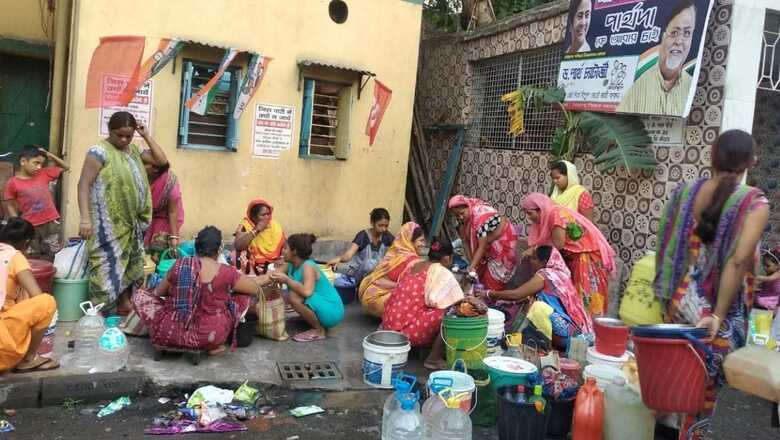
views
Tucked inside a lane beside a posh apartment complex in South Kolkata’s Behala area lies Ambedkar Colony. While the neighbourhood is middle-class, the colony is home to around 500 sanitation workers employed with the Kolkata Municipal Corporation. A commotion could be heard in the colony on the eve of the area going to polls on Saturday. The din was over water as scores of women and children queued up with colourful buckets around one pipe supplying water from the corporation.
“Ki dekhchen didi? Eta regular (What are you looking at? This commotion is regular),” yelled a woman from the queue. The colony has been home to this community for almost a century.
City’s Cleaners Living in Filth
A walk inside the colony reveals the dire conditions that the sanitation workers live in. The people who wake up to sweep the city clean return home to live amid filth and garbage, because “keo amader jonno kichu kore na (no one does anything for us)”.
The colony falls under Kolkata’s Behala Paschim (West) constituency that is represented by state education minister and Trinamool Congress heavyweight Partha Chatterjee. The corporation, however, falls under Ward 128, headed by CPI(M)’s Ratna Roy.
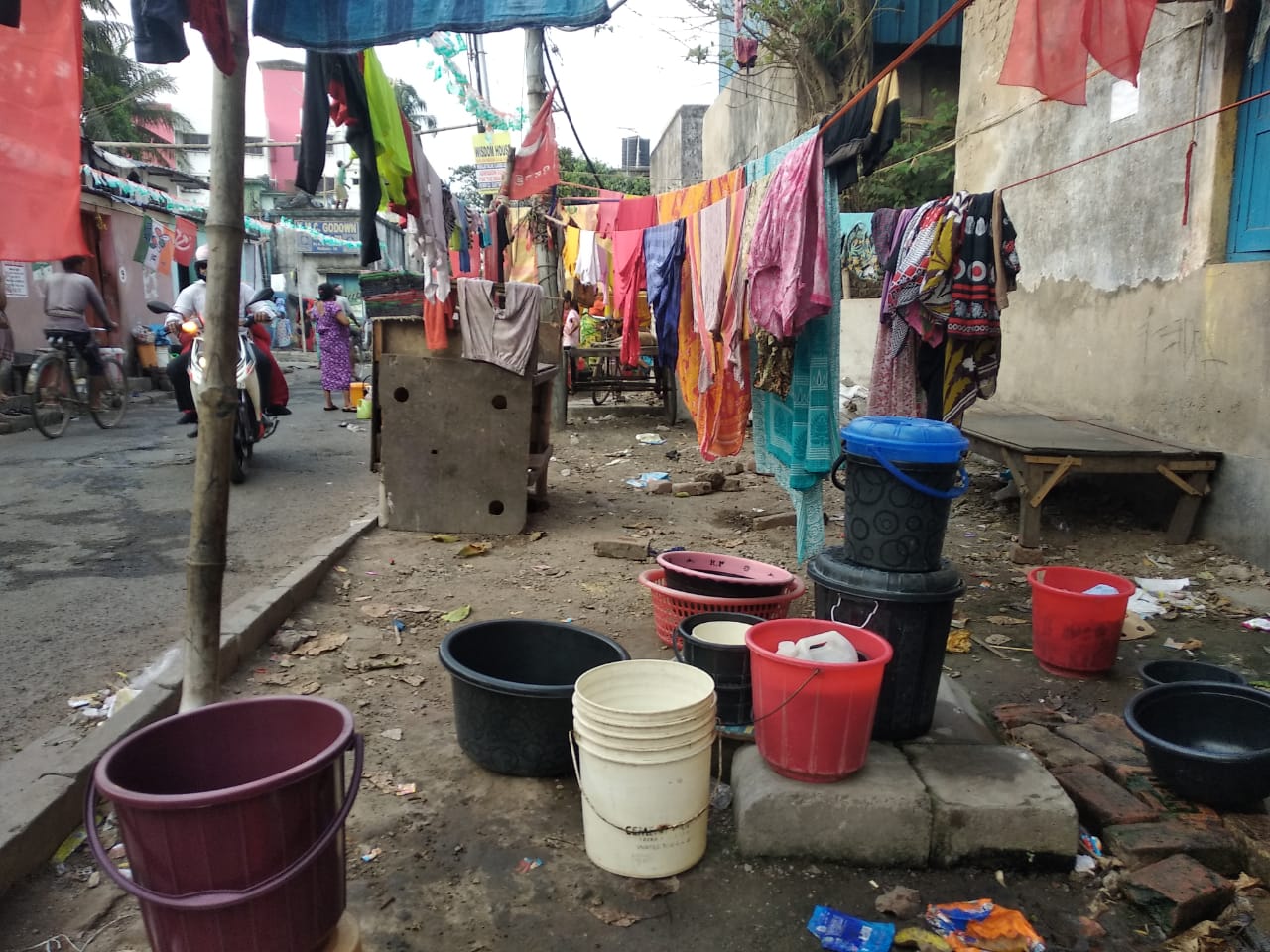
Empty buckets lined up to be filled on the street. (Ahona Sengupta)
“Kahan koi sarkar kaam dila paya hai aaj tak (when has the government been able to give us work?). My son doesn’t have a job. So many around us don’t have a job. Ek bhi naukri nahi hai, abhi ladka bada hai, usko naukri milni chahiye (there is not a single job, my son is growing up, so he should get a job),” said Nisha Valmiki, whose husband works as a sweeper at a private office in Behala and has been living there for over seven decades.
The 37-year-old Nisha, who works as a househelp, said, “Here, our decrepit houses are evidence of the dire conditions we live in. You don’t even have to ask us any question. Our houses are falling apart, but these leaders think of us a week before elections. So, why should we trust anyone? However, last year, when we were in abject conditions at the time of cyclone Amphan, we got some immediate relief from our councillor here.”
Nisha said Ratna Roy worked for them when they desperately needed it. “Last year, when the cyclone wrecked Kolkata, she rescued us when we sought shelter. She took us to another building nearby where we waited out the storm and returned only when it was safe again. She did it for us,” Nisha said, feeding her neighbour’s toddler in her arms.
When asked about chief minister Mamata Banerjee’s ambitious Swastha Sathi and other schemes, the mother of two said, “Only wheat and rice are free. So, even though that has helped us, how much can wheat do? However, it’s also true that last year during lockdown, the government distributed rice and some pulses as free ration for few months, but that has now stopped. My sons are 19 and 15. The elder one is studying and is struggling to find work and the younger one had to drop out of school due to heavy losses incurred after the Covid-19 lockdown. We don’t know how to find hope. These elections hardly mean anything to us,” she said.
“Last year, officials from the corporation regularly visited to sanitise the building. Then, they didn’t care anymore,” she said, adding that so far there hasn’t been a single case of coronavirus infection reported from their colony.
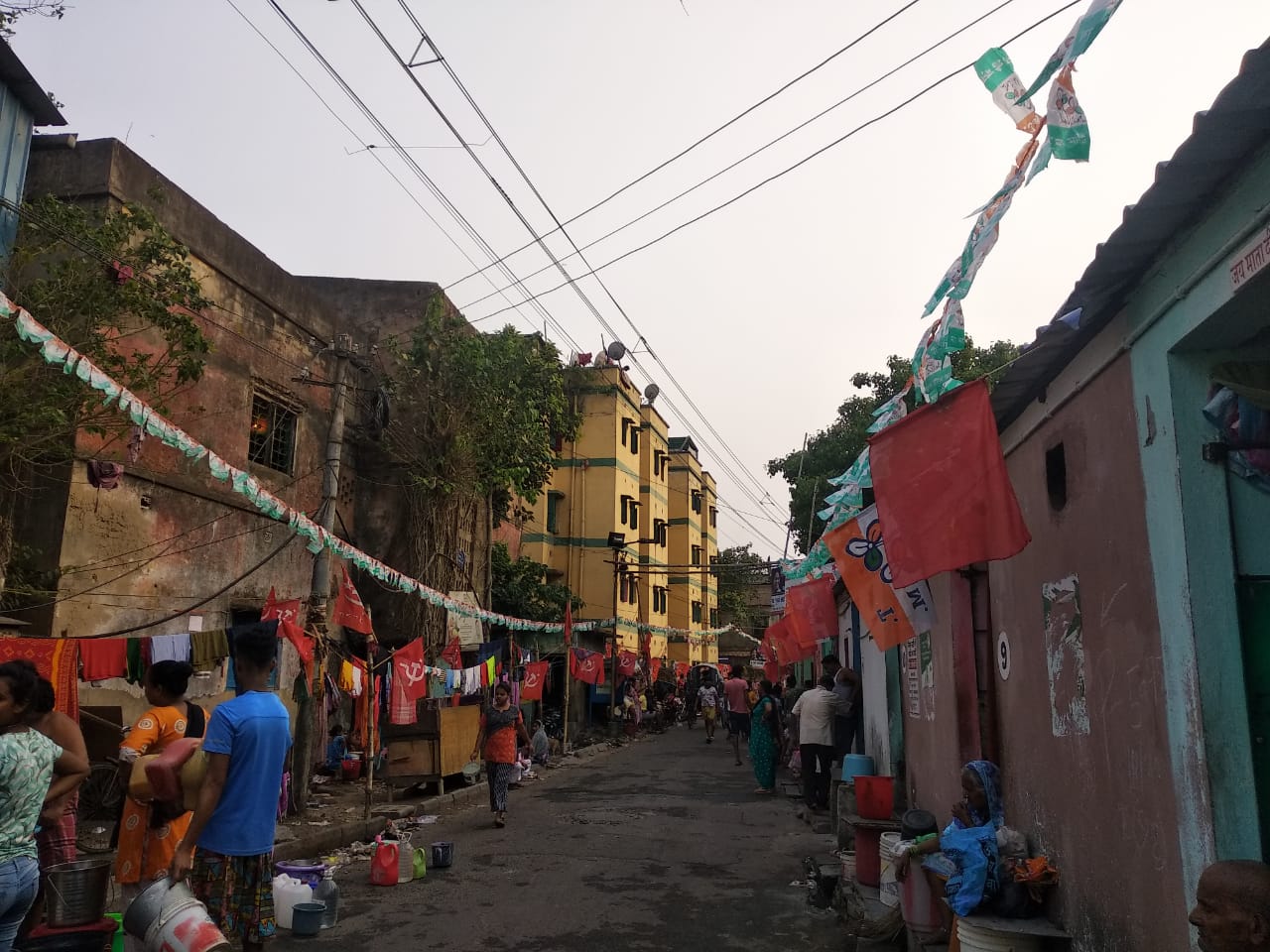
A lane inside the Ambedkar Colony in Kolkata’s Behala. (Ahona Sengupta)
Angst Against Hollow Promises, But Divisive Politics Not Welcome
The residents of the colony said that their families came to West Bengal from Uttar Pradesh at least 80 to 90 years ago to make a living. Most people News18 spoke with said they belonged to the Valmiki and Dhanuk castes.
“No one has given us 100 days of work. My husband has been a contractual worker at the corporation for 18 years. Still, he has not been made permanent. Eighteen years! He has not even got a raise. We run a family of five, including my daughter, brother-in-law and mother-in-law. We don’t have a proper supply of water. We are all from the families of sanitation workers and we don’t have proper bathrooms in our homes. It’s a joke. What we had in the name of bathrooms were just holes with worms and insects and clogged drains,” said Priya Dhanuk (name changed).
“We had been raising the matter for years now, but only recently the government could finally notice our hardship after we requested our MLA Parthada (Chatterjee) to visit our houses during an election rally. We were promised eight bathrooms for around 20 families. But we’ve got three so far, that too, only days before the election,” she said.
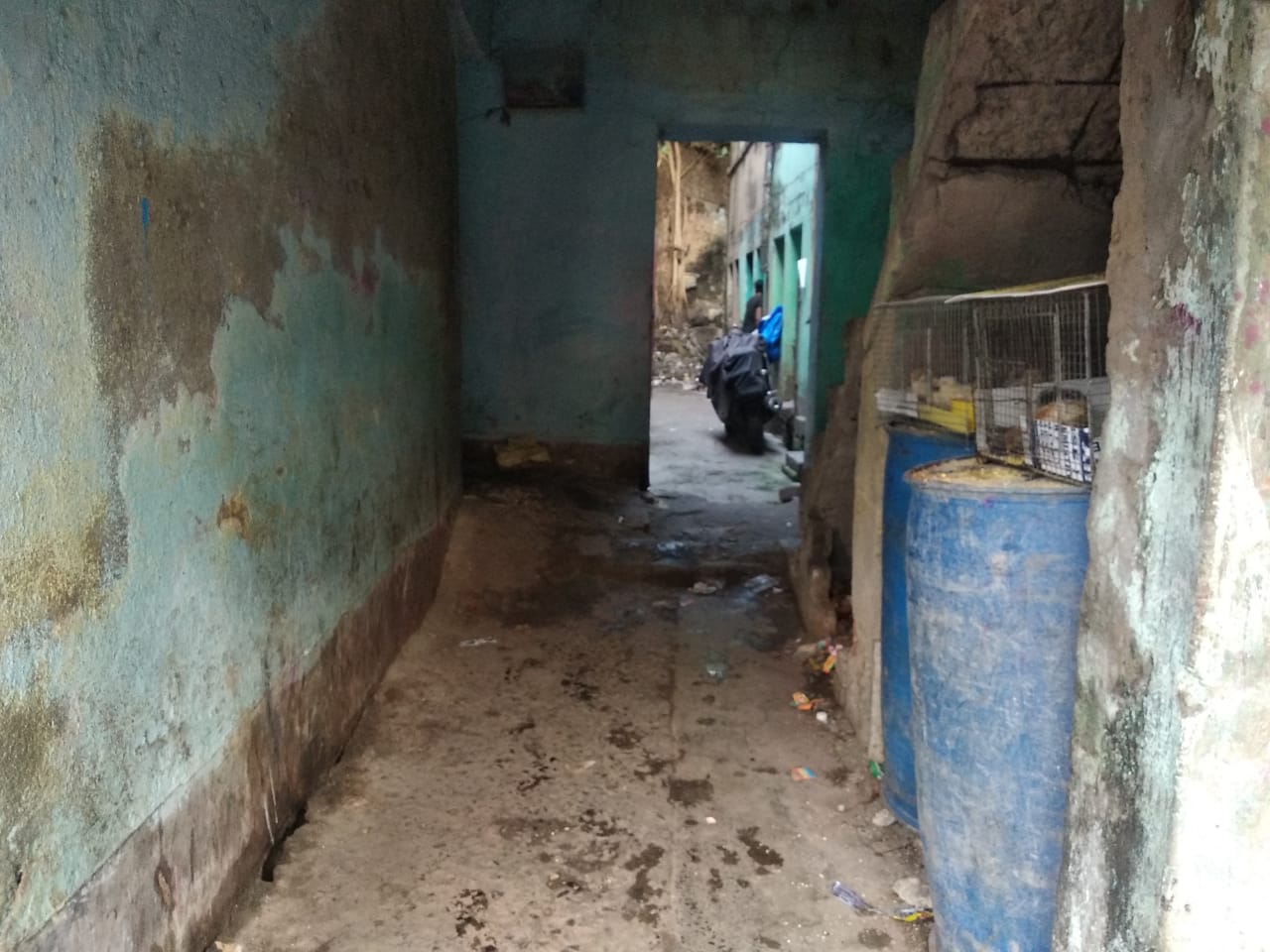
The path towards the decrepit houses in the street. (Ahona Sengupta)
Priya, who works as a cook, pointed at the serpentine queue around the single water source and scores of women fighting their way through to wash dishes and clothes simultaneously and said, “Here, we have just one pipe for supplying water and every morning and evening we end up in bitter fights with our neighbours over water. It’s a major scarcity. All these men roaming around you see? They are all jobless. The women have managed work here and there. Kauke toh kaaj korte hobe, didi (someone has to work). Thank god our men haven’t strayed into criminal businesses because unemployment drives one into all this. Peter jala (hunger), didi!”
“But we also want to live in harmony with everybody. We do not welcome any kind of divisive politics because we are already drowning in problems, why would we want more issues,” the 34-year-old asked.
Meanwhile, 36-year-old Sunny Dhanuk, a corporation cleaner, is looking to vote for change with the hope of a better life and a “respectable job”.
“In the last decade, we haven’t received any benefit from this (TMC) government. We gave the CPM so many years. It had worked for us. Most of us got employed during that time. Then came the TMC, but our situation didn’t improve, rather it only worsened. In fact, now so many of us here are jobless. We understand how politicians want us to divide, but who wouldn’t want a change,” asked Sunny.
The Dhanuks, who were originally sanitation workers in Bihar, joined the category of sweepers only after they migrated to other cities like erstwhile Calcutta. The Dhanuk population mainly resides in Bihar and have been categorised as the lower backwards along with several other castes, constituting 32% of the state’s population. They have been identifying themselves with the Mandal (or Kurmi) and Mahto castes in the eastern parts of India. They are also a significant voting block in Bihar.
Father to a 13-year-old daughter, Sunny said, “I have to think about my daughter’s education so that she has a better future. So that she doesn’t have to be in the same sector as I am. I was unfortunate so, like my father was a safai karamchari (sanitation worker), I too had to become one due to lack of opportunities. I will definitely not want the same for my child.”
The road has garbage dumped everywhere along its lanes. The drains dividing the main road from the dingy residences are clogged with plastic packets and littered with animal excreta. The living sight assigned for those who clean the city is horrendous. “These drains are a den for mosquitoes all round the year,” said a child.
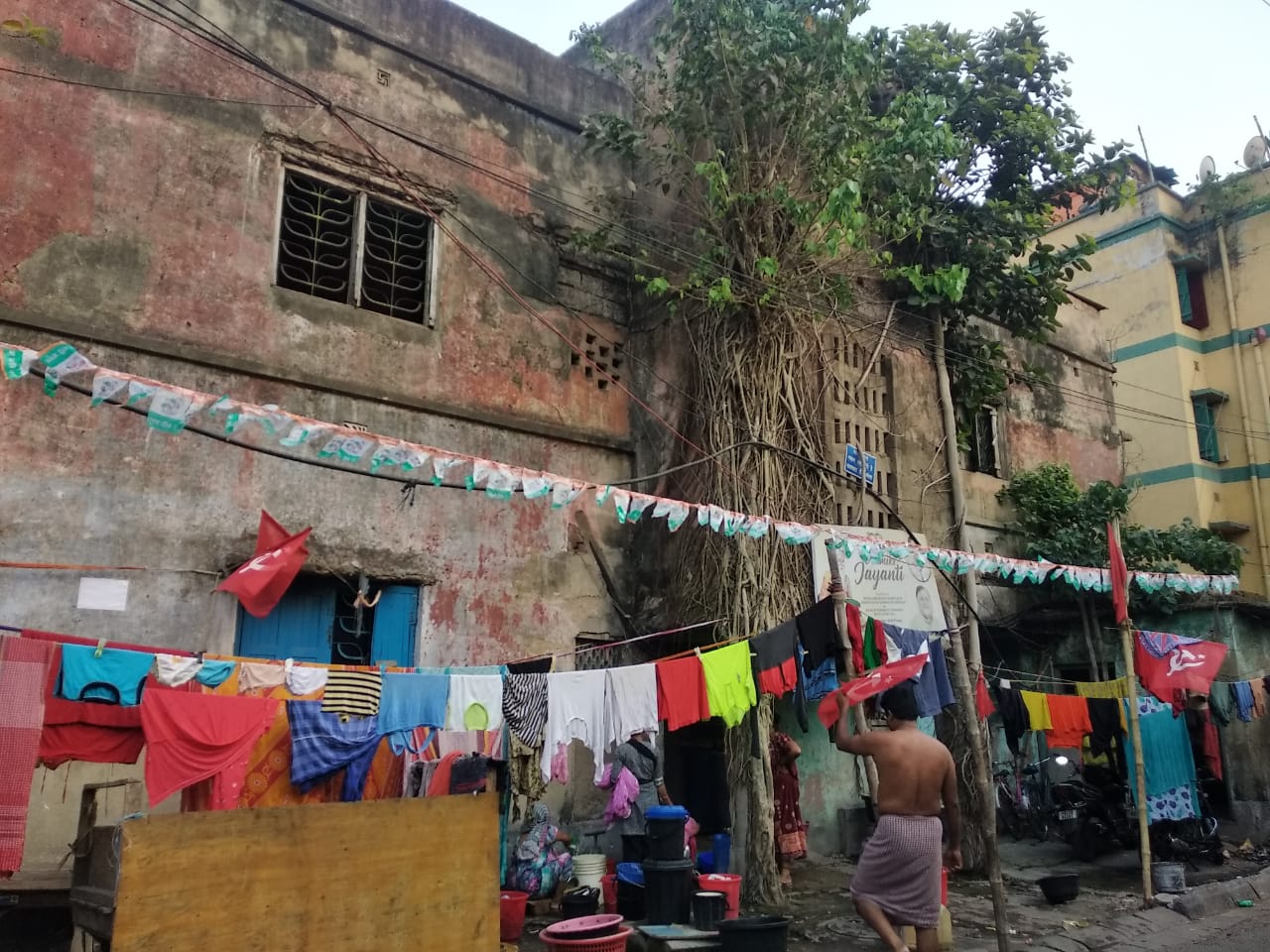
A dilapidated house at the Ambedkar Colony. (Ahona Sengupta)
‘Those Who Will Feed Us, Will Get the Name’
At the corner of the street, beside a pan shop, sat a middle-aged woman scolding her son for smoking ‘beedi’ and “wasting money”.
“To think about it, no one actually has done anything for us. Every election year these parties line up in our colony to ask for votes and then disappear for five years. Ke morche, ke banchhe aar keo dekhte ashe na (no one comes to check if we are alive or dead,” said Sheela Dhanuk (name changed).
Sheela has been employed at the corporation as a sanitation worker since 2008 when her husband passed away.
“During cyclone Amphan, this building, which is already dilapidated as you can see, suffered heavy damage. Later, only a few could be relocated to these newly built houses. Rest are still waiting. Besides, these new houses are like dog shelter,” she said.
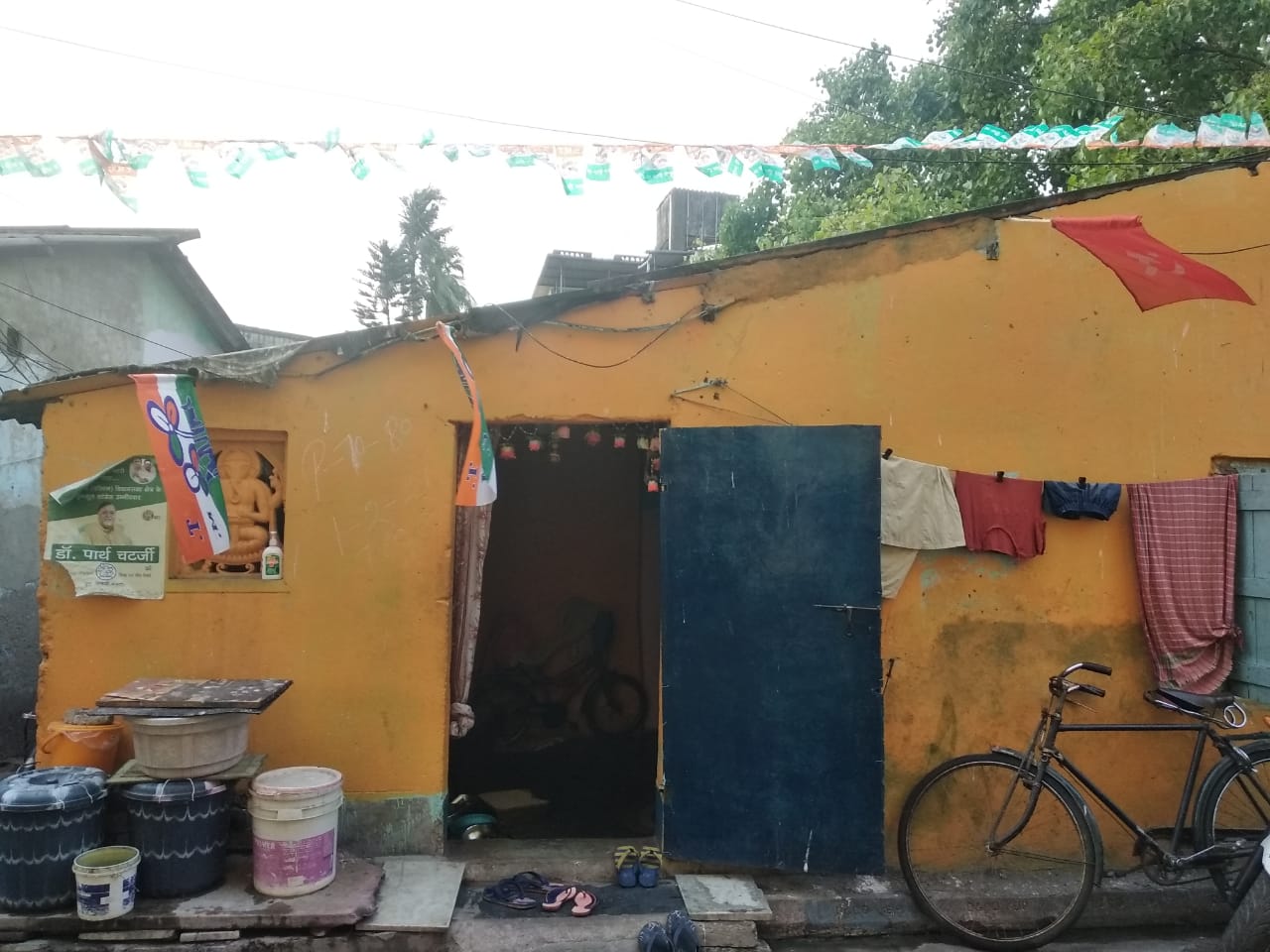
A house on the side of the lane. (Ahona Sengupta)
“But, the free ration has honestly helped us a lot. At least “khete toh parchi didi” (we are getting to eat, didi). Everything is so expensive. Starting from gas cylinders to vegetables to medicines. So, if you are given something for free even if it is rice, wheat and pulses, why would we complain? But, the government should have worked more for the poor as it keeps promising,” she added.
“Je khete debe, shei naam pabe (Those who will feed us, will get the name),” the 45-year-old woman said.
Standing beside her, a 22-year-old Rajesh Dhanuk (name changed), said he lost his job in March 2020 and has been sitting at home since.
He said, “After the lockdown, every family here has an unemployed son. All the women are working either at the corporation building as cleaning staff or as house helps or cooks at people’s homes. Where else is work? We have been in this profession for as long as we can remember. So, which government has really tried to uplift us? No one, as you can see. If given an opportunity, why would we not want to have a better life?”
Rajesh, who worked as a sanitation worker in the Railways’ Quarter on a contractual basis, was shown the door during the first week of lockdown in March. And he wasn’t alone. Several others in his community lost their jobs too, including his brother. Now, he said, they are dependent on his mother who works as a house help.
“Amar boyoshko Maa koto loker baari koto kaaj korbe (how much will my old mother work at people’s houses)? We at least had some contractual work. Now we don’t have anything. How can one person’s income feed three adults? Our houses are crumbling, everywhere there are cracks. No one even bothers to fix them. This is the basic minimum that the government and the corporation can do. So, we don’t have faith in a single political party,” he said.
Ironically, the Ambedkar Colony, is full of CMC quarters and comes under one of the constituencies of the awareness campaign run by Garbage Free India. The GFI is a Kolkata-based citizen’s collective seeking to raise awareness against throwing garbage mindlessly.
(Names of some people have been changed on their request for anonymity)
Read all the Latest News, Breaking News and Coronavirus News here. Follow us on Facebook, Twitter and Telegram.















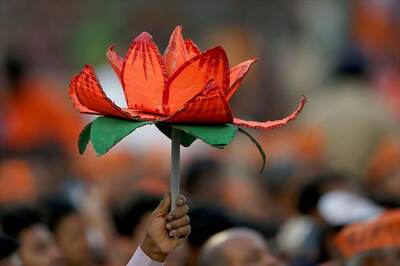




Comments
0 comment